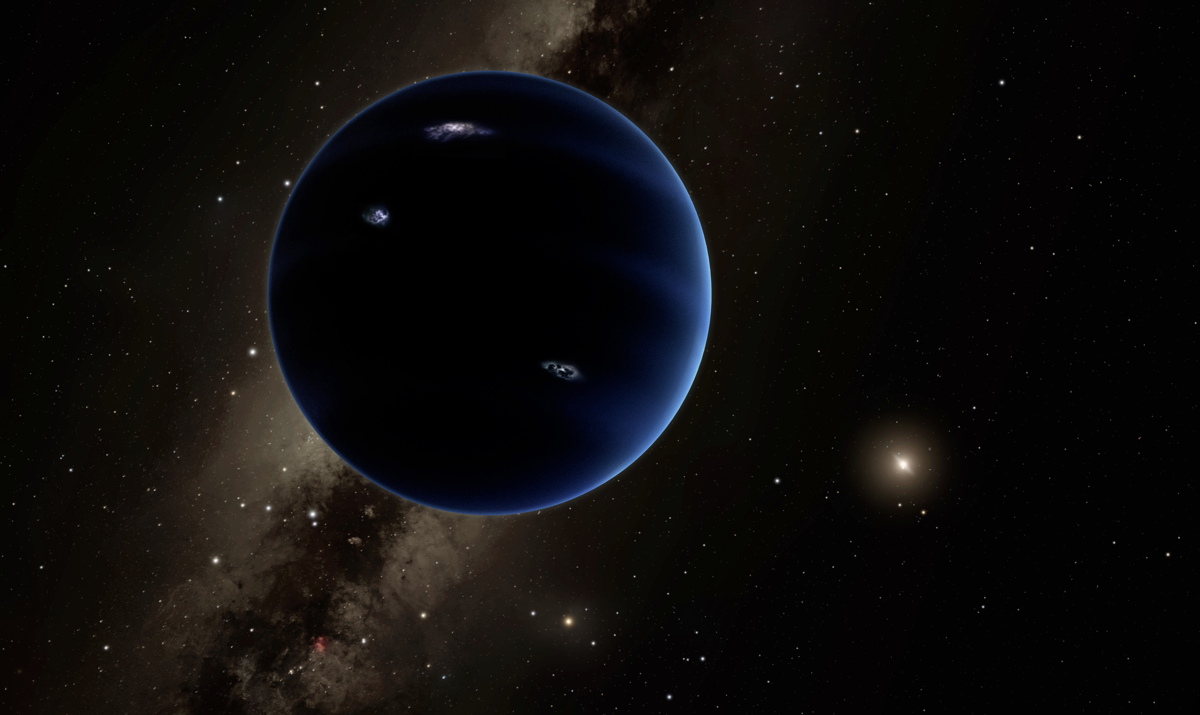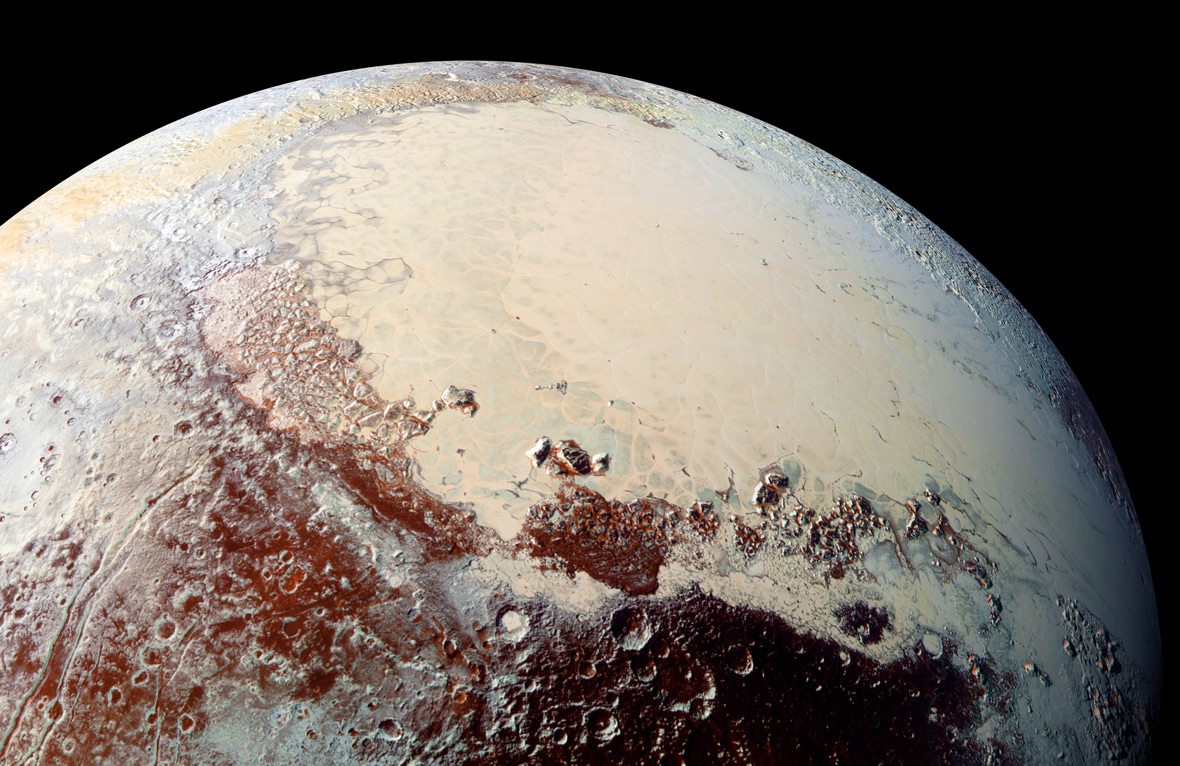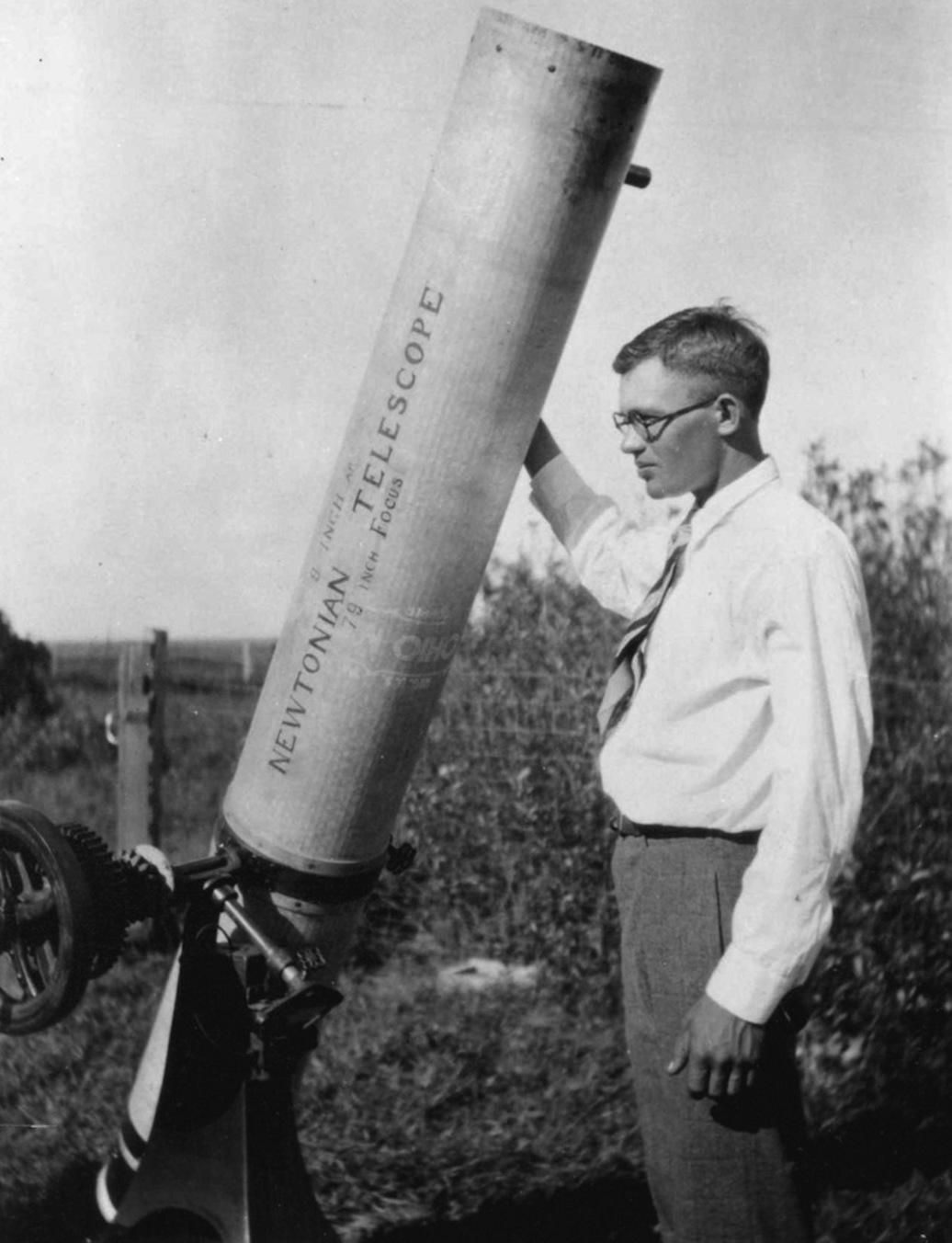
Planet Nine: 'Insensitive' Term Riles Scientists

Don't call it Planet Nine.
That nickname for the big world that may lurk unseen in the far outer solar system doesn't show the proper amount of respect to the discoverer of the original ninth planet, Pluto, a group of researchers argues in a new message to their colleagues.
The International Astronomical Union (IAU) famously reclassified Pluto as a "dwarf planet" in 2006. That decision remains highly controversial today, as made clear by the new note, which appeared in the July 29 issue of the Planetary Exploration Newsletter.
The message, titled "On the Insensitive Use of the Term 'Planet 9' for Objects Beyond Pluto," reads:
"We the undersigned wish to remind our colleagues that the IAU planet definition adopted in 2006 has been controversial and is far from universally accepted. Given this, and given the incredible accomplishment of the discovery of Pluto, the harbinger of the solar system's third zone — the Kuiper Belt — by planetary astronomer Clyde W. Tombaugh in 1930, we the undersigned believe the use of the term 'Planet 9' for objects beyond Pluto is insensitive to Professor Tombaugh's legacy.

"We further believe the use of this term should be discontinued in favor of culturally and taxonomically neutral terms for such planets, such as Planet X, Planet Next or Giant Planet Five."
Nearly three dozen researchers signed onto this message. They are:
Breaking space news, the latest updates on rocket launches, skywatching events and more!

- Paul Abell
- Michael Allison
- Nadine Barlow
- James Bauer
- Gordon Bjoraker
- Paul Byrne
- Eric Christiansen
- Rajani Dhingra
- Timothy Dowling
- David Dunham
- Tony L. Farnham
- Harold Geller
- Alvero Gonzalez
- David Grinspoon
- Will Grundy
- George Hindman
- Kampalayya M. Hiremath
- Brian Holler
- Stephanie Jarmak
- Martin Knapmeyer
- Rosaly Lopes
- Amy Lovell
- Ralph McNutt
- Phil Metzger
- Sripada Murty
- Michael Paul
- Kirby Runyon
- Ray Russell
- John Stansberry
- Alan Stern
- Mike Summers
- Henry Throop
- Hal Weaver
- Larry Wasserman
- Sloane Wiktorowicz
Leonard David is author of "Mars: Our Future on the Red Planet," published by National Geographic. The book is a companion to the National Geographic Channel series "Mars." A longtime writer for Space.com, David has been reporting on the space industry for more than five decades. Follow us @Spacedotcom, Facebook or Google+. This version of the story published on Space.com.
Join our Space Forums to keep talking space on the latest missions, night sky and more! And if you have a news tip, correction or comment, let us know at: community@space.com.

Leonard David is an award-winning space journalist who has been reporting on space activities for more than 50 years. Currently writing as Space.com's Space Insider Columnist among his other projects, Leonard has authored numerous books on space exploration, Mars missions and more, with his latest being "Moon Rush: The New Space Race" published in 2019 by National Geographic. He also wrote "Mars: Our Future on the Red Planet" released in 2016 by National Geographic. Leonard has served as a correspondent for SpaceNews, Scientific American and Aerospace America for the AIAA. He has received many awards, including the first Ordway Award for Sustained Excellence in Spaceflight History in 2015 at the AAS Wernher von Braun Memorial Symposium. You can find out Leonard's latest project at his website and on Twitter.
